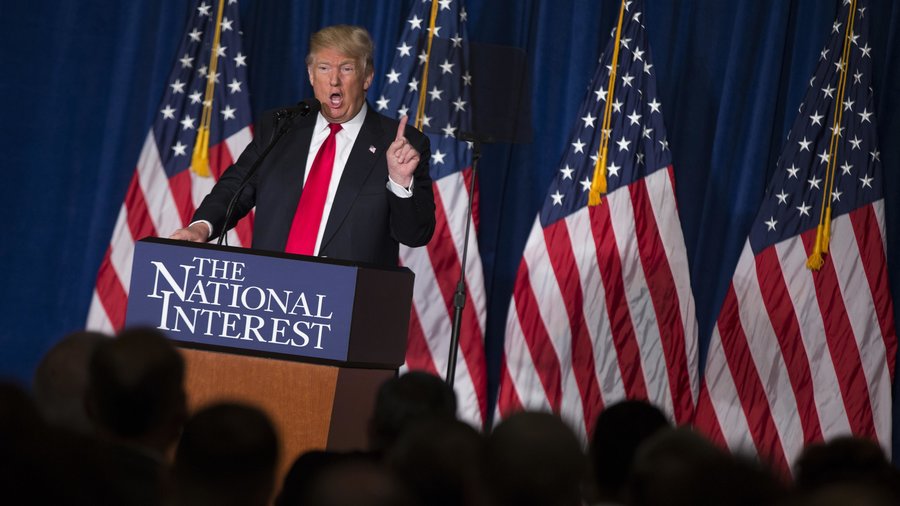
Hillary Clinton likely breathed a sigh of relief Tuesday when the FBI declined to recommend any charges after investigating her use of a private email server as secretary of state. But the rebuke FBI Director James Comey delivered along with that announcement – that Clinton and her team had been «extremely careless» in handling classified data during her time at the State Department – may deepen voters’ existing concerns about her judgment, honesty and trustworthiness.
The problem for presumptive Republican nominee Donald Trump? With his own dismal numbers on honesty, trustworthiness, and judgment, he’s not well positioned to exploit what are arguably Clinton’s biggest vulnerabilities.
A CBS News poll last month found that only 33 percent of voters believe Clinton is honest and trustworthy, while 62 percent believe she is not. 93 percent of Republicans and even 29 percent of Democrats were in the latter camp.
Still, Trump’s numbers were actually worse, by a hair: 32 percent said he’s honest and trustworthy, 63 percent said he is not.
In the same poll, 43 percent of voters said Clinton generally demonstrates good judgment, 52 percent said she does not. They weren’t optimal numbers, for a politician running for the most consequential job in the world, but Trump’s were even worse: only 25 percent said he demonstrates good judgment, while 69 percent disagreed.
Both questions – whether Clinton is honest and whether she demonstrates good judgment – were called into question by the FBI’s report. Investigators concluded that Clinton and her team should have known better than to set up the private server, and that it’s possible hackers gained access to the sensitive information in Clinton’s email system. Their report also undermined several of the explanations she’s made since the story broke, particularly her insistence that she did not knowingly send or receive any material that was marked classified.
In last month’s CBS News poll, only 26 percent of voters argued Clinton did nothing wrong in setting up her private server. Twenty-five percent said what she did was wrong, but not illegal, and 41 percent said it was illegal. And in aRasmussen Poll released Tuesday, 54 percent of voters disagreed with the FBI’s decision not to recommend charges, suggesting Clinton should have been indicted. Only 37 percent agreed with the FBI’s conclusion.
In short, Tuesday could have been worse for Hillary Clinton – a recommendation to indict would have been colossally damaging – but it was still pretty darn bad. The FBI’s report opened fresh questions about Clinton’s honesty and judgment that are likely to dog her for some time. It’s just not clear Trump will be able to convert doubts about Clinton into support for himself, given voters’ misgivings about his own veracity and prudence.
Some new head-to-head matchups show the 2016 race mostly holding steady, with a slight lead for Clinton, though one poll last week showed Trump narrowly ahead.
Clinton was up big in a Reuters/Ipsos surveyreleased Tuesday, defeating Trump among likely voters nationwide, 46 to 33 percent.
A USA Today/Suffolk poll released Tuesday also found Clinton ahead, but by a slimmer margin: she was at 45.6 percent among likely voters, while Trump was at 40.4 percent.
Both of those surveys track fairly closely with other recent polls. But a survey from Rasmussen last week cut against the grain, showing Trump ahead 43 to 39 percent among likely voters. It was the first major national poll since mid-May that showed Trump in the lead.
In the swing state of Iowa, Clinton has a big lead, according to a survey last week from Loras College. The presumptive Democratic nominee was ahead of Trump 48 to 34 percent in the poll of likely Iowa voters.
And in New York, a reliably democratic state that Trump has occasionally suggested he might be able to carry, a new Siena College poll demonstrates that he may be tilting at windmills — Hillary Clinton was up 54 to 31 percent in the survey of registered voters in New York.



Expositores: Oscar Vidarte (PUCP) Fernando González Vigil (Universidad del Pacífico) Inscripciones aquí. Leer más
Una retrospectiva para entender los próximos cuatro años. Leer más
En la conferencia se hará una presentación de los temas más relevantes del proceso de negociación se llevó a cabo desde el 2012, así como del acuerdo de paz firmado entre el Gobierno colombiano y la guerrilla de las FARC a finales del 2016. Se analizarán los desafíos y las... Leer más
El Observatorio de las Relaciones Peruano-Norteamericanas (ORPN) de la Universidad del Pacífico es un programa encargado de analizar y difundir información relevante sobre la situación política, económica y social de Estados Unidos y analizar, desde una perspectiva multidisciplinaria, su efecto en las relaciones bilaterales con el Perú.
© 2026 Universidad del Pacífico - Departamento Académico de Humanidades. Todos los derechos reservados.

